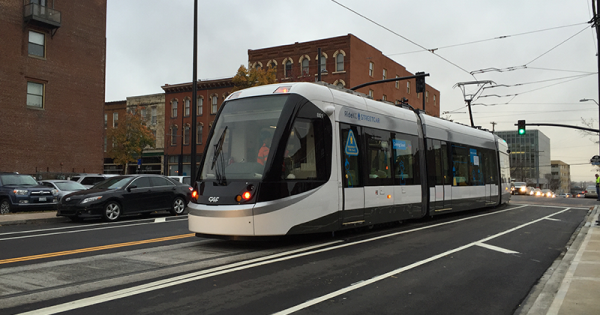Trending
Wave goodbye? Fort Lauderdale may be closer to canceling its streetcar project
The city's newly elected mayor and two incoming commissioners pledged to end the city's development of a streetcar system called the Wave

After Fort Lauderdale’s newly elected mayor and city commissioners officially take office on Tuesday, they may end the city’s controversial effort to develop a streetcar system called the Wave.
Voters last week elected Dean Trantalis as mayor and Steve Glassman and Ben Sorenson as city commissioners.
All three of them signed a campaign pledge to cancel the Wave streetcar project on the day they take office after a swearing-in ceremony.
Glassman, Sorenson and Trantalis signed a pledge in early February to vote “to cancel the Wave at the first meeting of the newly elected commission.” A civic group called FLAW, or Fort Lauderdale Against the Wave, urged them to sign the pledge.
The trio will outnumber two commissioners who support the Wave: Robert McKinzie, who was re-elected, and Heather Moraitis, who was elected without opposition.
Critics of the Wave streetcar project object because it would involve installation of overhead electrical wires and rails embedded in streets.
Other objections to the planned streetcar system include its limited route, which would not initially extend to Fort Lauderdale’s seaport or airport, and its higher-than-estimated cost.
Mayor Jack Seiler and City commissioners McKinzie and Romney Rogers voted in February in favor of a financial recommitment to the Wave project by the city.
A civic group called Lauderdale Tomorrow recently began gathering signatures for petition to revoke a special tax assessment that owners of property along the planned route of the Wave are paying to support the streetcar project.
Mary Fertig, the leader of Lauderdale Tomorrow, told members of the group in an email that the petition drive “provides a way for citizens who will be the ones actually paying for the system to voice their opposition to paying for a project which many citizens no longer support.” [Sun-Sentinel] – Mike Seemuth




